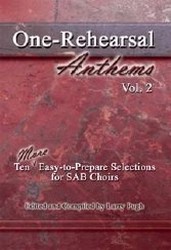- |
User Links
Immortal, Invisible, God Only Wise
Hymn Information
- First Line
- Immortal, invisible, God only wise
- Author
- Walter C. Smith (1867, alt.)
- Tune Name
- ST. DENIO
- Tune Source
- Welsh, in J. Roberts' <cite>Caniadau y Cyssegr</cite>, 1839
- Topic
- God As: Ancient of Days · God as: Creator · God As: Father · God's: Glory · God's: Mystery · God's: Power · God's: Reign · God's: Wisdom · Elements of Worship: Praise and Adoration
Copyright Information
- Text Copyright
- Public Domain
- Tune Copyright
- Public Domain
- Reprint/Projection Information
- Words and Music: The Words and Music are in the Public Domain; you do not need permission to project or reprint the Words and Music.
Full Text
Scripture References
Further Reflections on Scripture References
Walter C. Smith based this text on 1 Timothy 1: 17: "Now to the King eternal, immortal, invisible, the only God, be honor and glory for ever and ever." The six-stanza text was published in Smith's Hymns of Christ and the Christian Life (1867) and, after having been revised by Smith, in W. Garrett Horder's Congregational Hymns (1884). Further revisions were made by the Psalter Hymnal Revision Committee.
"Immortal, Invisible" is a strong text of praise to God, who created and sustains the lives of all his creatures. The text focuses on the Creator of the universe, the invisible God whose visible works in nature testify to his glory and majesty. "Light" is the prevailing image in stanzas 1, 2, and 4 (see also Ps. 104:2); our inability to see God is not because of insufficient light but because the "splendor of light hides [God] from view."
Confessions and Statements of Faith References
Further Reflections on Confessions and Statements of Faith References
What we know as the attributes of God reveal his character and being. For these, he is worthy of praise and adoration. Even before he says or does anything, he is praise-worthy. The opening words of Belgic Confession, Article 1 declare that God is “eternal, incomprehensible, invisible, unchangeable, infinite, almighty; completely wise, just, and good, and the overflowing source of all good.”
The Lord’s Prayer ends with a doxology, and Heidelberg Catechism, Lord’s Day 52, Question and Answer 128 extrapolates: “Your holy name…should receive all the praise, forever.” After expressing our trust in the total care of God for all things, Heidelberg Catechism, Lord’s Day 9, Question and Answer 26 declares, “God is able to do this because he is Almighty God and desires to do this because he is a faithful Father.” And so we express our praise and adoration to God for who he is.
Immortal, Invisible, God Only Wise
Blessing/Benediction
Immortal, Invisible, God Only Wise
Tune Information
- Name
- ST. DENIO
- Key
- G Major
- Meter
- 11.11.11.11


 My Starred Hymns
My Starred Hymns






